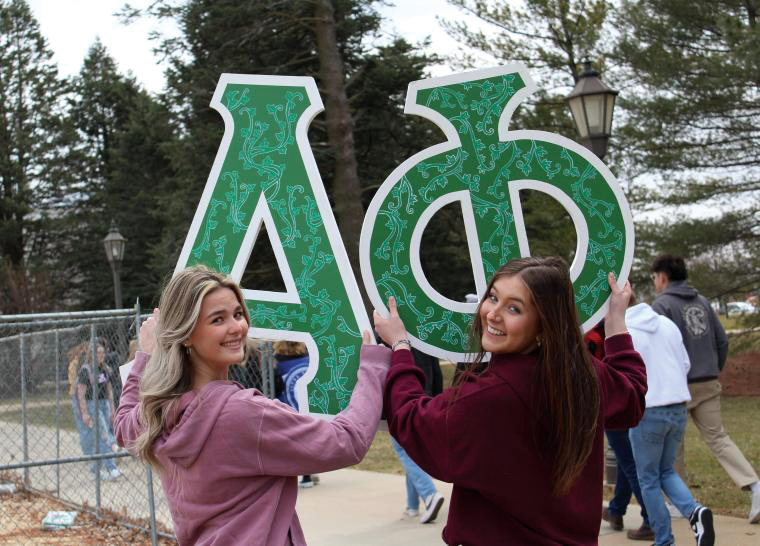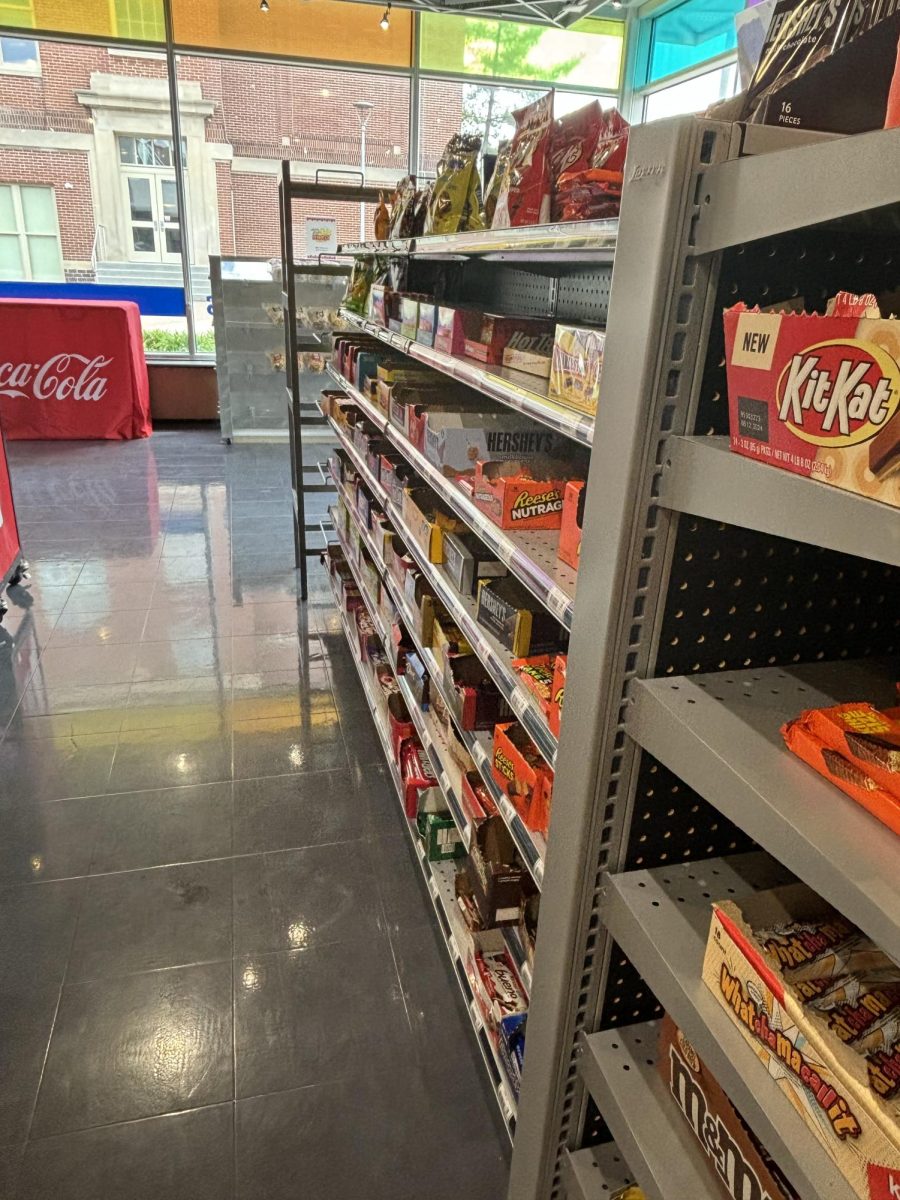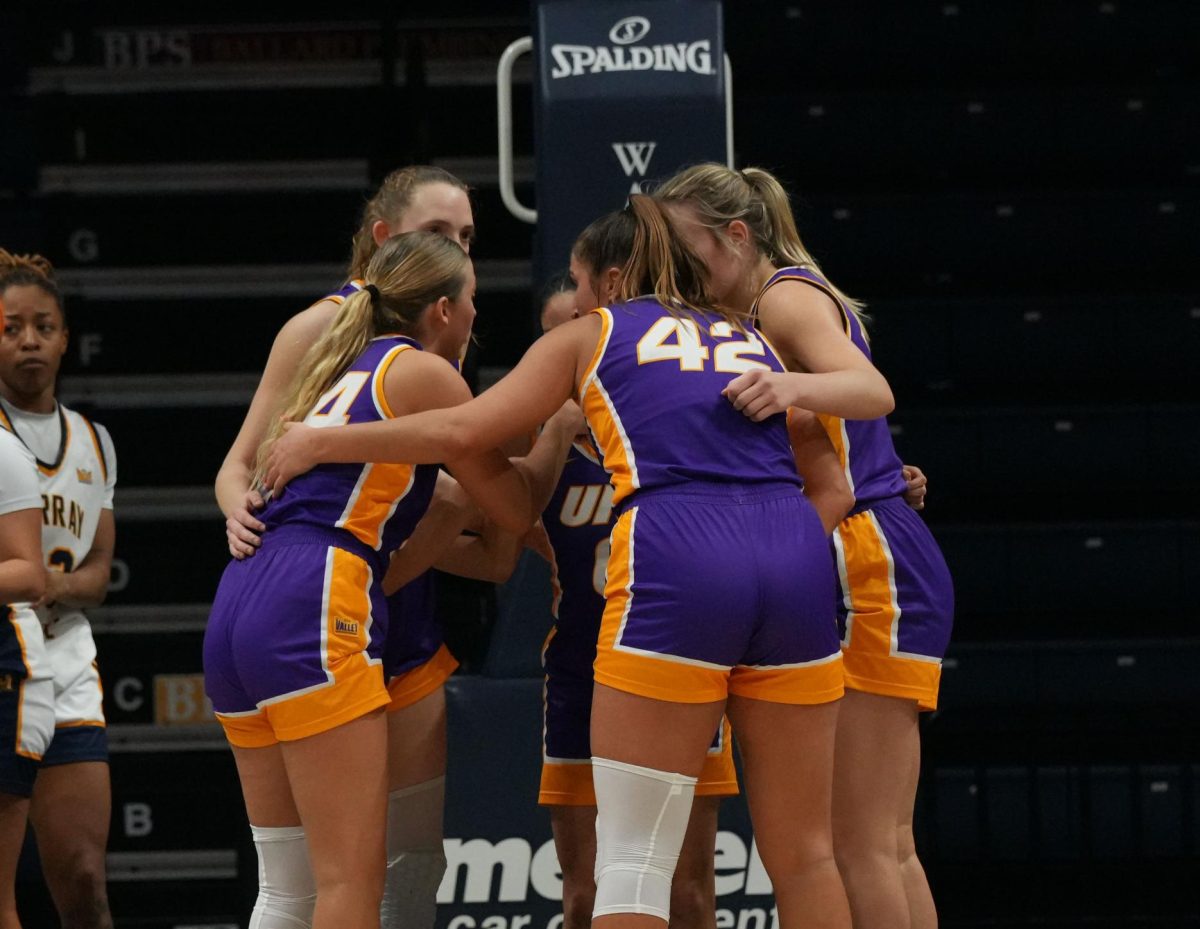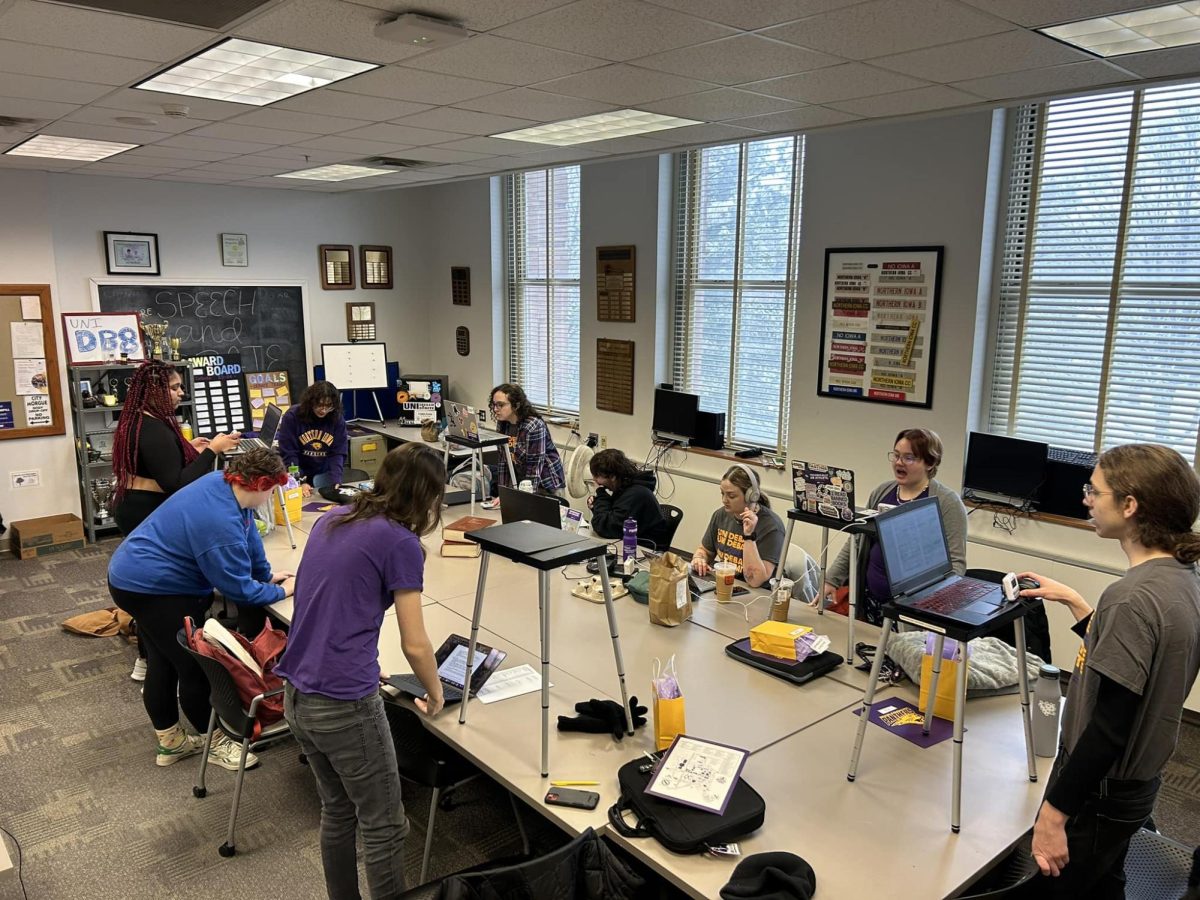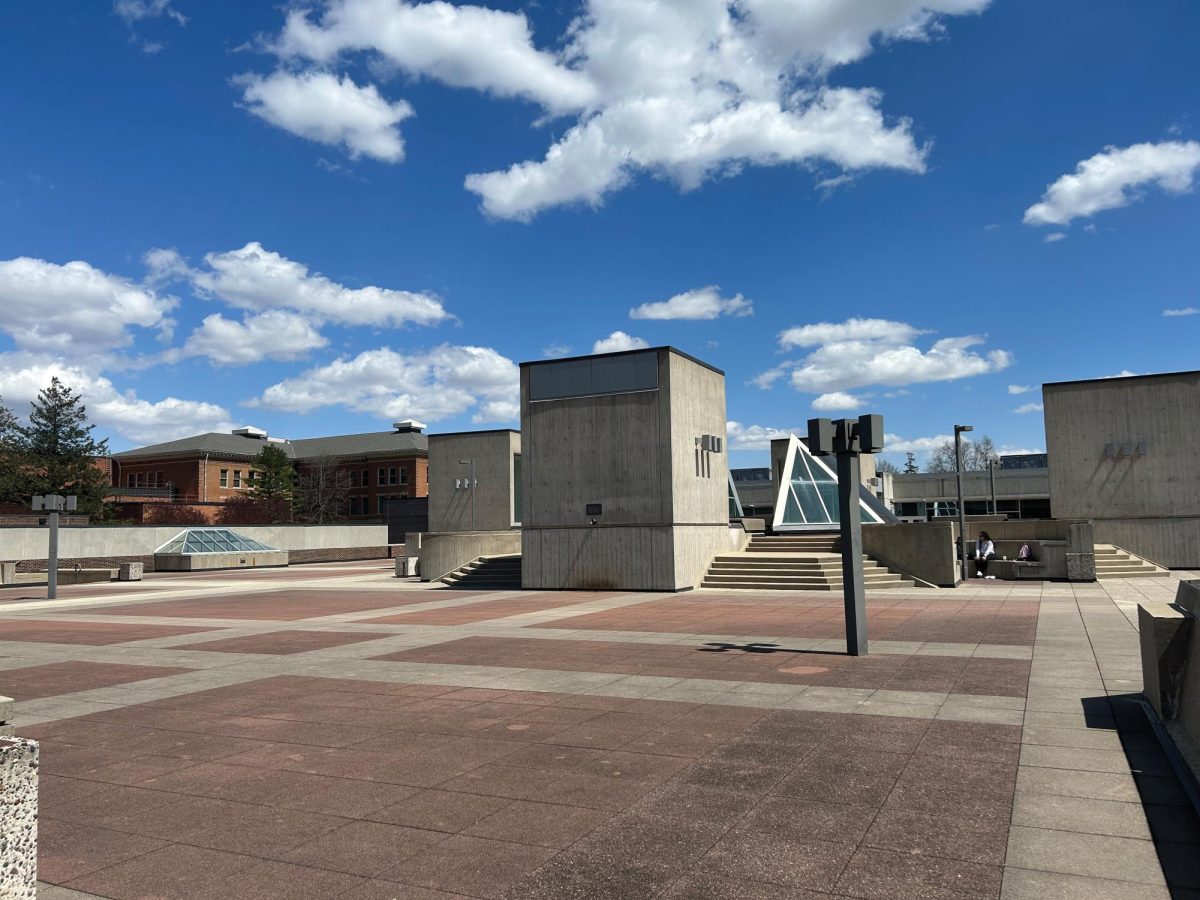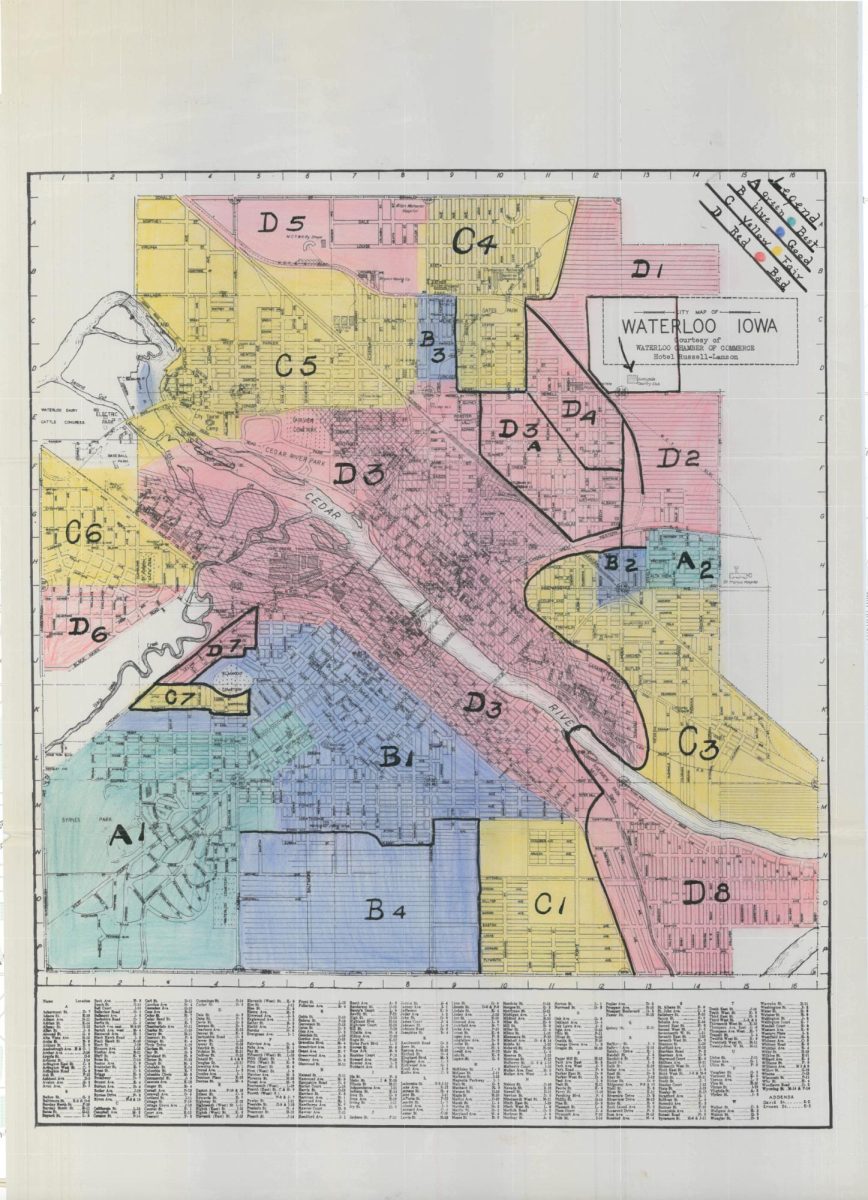Since 1904, with the installment of a Kappa Delta chapter at the University of Alabama, sorority rush has been a culturally significant part of being a student at Alabama. In the 118 years since then, sorority life has changed dramatically. Not just at Alabama, but across the country.
UNI’srecruitment process is not unlike the University of Alabama’s rush, but the culture around it is extremely different.
UNI’s Sorority Recruitment takes off this upcoming Wednesday, September 13. With the prevalence of the infamous “Bama Rush” series on TikTok, how has social media impacted the way college students view fraternity and sorority life? What are the differences between Alabama’s Greek life and UNI’s fraternity and sorority life?
I, myself, have the unique experience of participating on both sides of UNI’s sorority recruitment. I’ve been the potential new member (also known as PNM) and I’ve been the active member clapping, singing and welcoming PNMs into our chapter facility. I have the privilege of serving on the UNI chapter of Gamma Phi Beta’s executive board. UNI’s recruitment process is not unlike the University of Alabama’s rush, but the culture around it is extremely different.
Almost every university with a Greek life has a fall recruitment, otherwise known as a primary recruitment. During fall recruitment, PNMs will visit each chapter and go through several rounds to make connections with different active chapter members.
The first round of recruitment is typically called “Meet the Chapters” or “Open House.” This round is the shortest, as PNMs need to have enough time to visit every chapter. After this round, recruitment gets a tad more complicated. For every round that follows a “Meet the Chapters” or “Open House” round, PNMs must be invited back to a sorority. This process involves the PNM ranking the chapter based on how much they enjoyed the chapter and the connections they made. In the chapters, active members ‘rate’ a PNM based on how they see the chapter’s values reflected in them. To be invited back to a chapter, you must pick the chapter and the chapter must also pick you.
The second round of recruitment is the “Philanthropy” round, where PNMs will be invited back to certain chapters to learn about their philanthropy and continue conversations with active members. At other universities, PNMs may participate in a “Sisterhood” round. At UNI, from “Philanthropy,” we go directly into “Preference.” This is the longest and, arguably, most important round of recruitment. PNMs are invited back to the chapters they feel closest to and, at the end of the night, will make their final rankings of the houses. This ranking will determine if she will receive a bid, and which chapter the bid could be from.
Recruitment itself is a complicated process. But at larger institutions, like the University of Alabama, the recruitment process can get even more complex. For the Fall 2022 Rush, University of Alabama’s Panhellenic Association saw 2,555 women rush. Of these women, 2,345 women received bids. Alabama sees a high volume of PNMs almost every year, and 2022 is no exception. Alabama is known for its Greek life. Since it’s so selective, PNMs must submit resumes, letters of recommendation from women who are active members, and stellar high school GPAs.
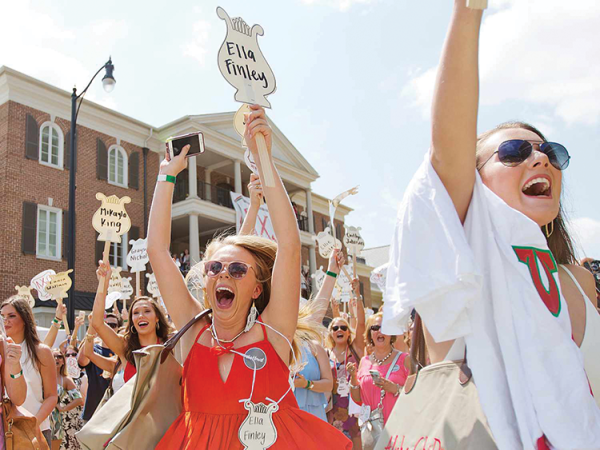
One documentary, directed by Rachel Fleit, promised to expose the secrets behind “Bama Rush.” The result was nothing short of disappointing. Mostly because there isn’t much to uncover from Alabama’s rush process. There aren’t many secrets that surround the rush process itself, in fact, the National Panhellenic Association encourages Panhellenic Associations to disclose as much information as possible. What Fleit missed was the culture surrounding Alabama’s rush. Namely, the blanket of racism that hangs over Alabama’s Greek life to this day. “We didn’t want to go up against the University of Alabama,” Director Fleit commented during the documentary. Which is convenient, because she didn’t. The documentary brushed over the racism that surrounds Greek life at the University of Alabama. It was mentioned that sororities were forcefully desegregated in 2013 at Alabama.
Before 2013, only one Black woman had ever been extended a bid at Alabama. This was mainly due to the advisors that help operate the sororities at the University of Alabama.
While most people on the outside of Greek life may believe that it is only collegiates making decisions for the sorority, that couldn’t be further from the truth, especially at Alabama. Advisory boards, made up of alumnae of chapters, guide executive boards through their terms and help lead the chapters. During recruitment, especially in the past, personal reservations from alumnae could hold back a chapter from recruiting women they connected with simply because of the color of their skin. As years have passed, these connotations have faded, but microaggressions still thrive at the University of Alabama, and blatant discrimination can still be found in some instances.
One of the major differences between rush at the University of Alabama and recruitment at the University of Northern Iowa is the influence and power that Greek life has at Alabama. On TikTok, Alabama’s ‘The Machine’ has been a large topic of confusion. The Machine is a group within Alabama’s Greek community that rigs student government elections, predetermines the homecoming queen, and even helps place Greek alumnus in state offices. The “Bama Rush” documentary aimed to expose The Machine further, but fell short due to threats, under planning and a lacking script.
Compared to UNI’s fraternity and sorority life (FSL), Alabama’s seems hulking. This is why most on campus members prefer UNI’s FSL presence to that of Alabama. It’s easier to connect with members, easier to work with other on-campus organizations, and makes the overall experience more enjoyable and special. Not to mention, it doesn’t cost an arm and a leg. The average dues for a sorority at Alabama for a member not living in the chapter facility, according to Alabama Panhellenic, is $3,696.35. For members living in the chapter facility, the average is $7,355.82. In comparison, I pay a fraction of this cost to live in my chapter facility alongside my active member dues. This is just one of many reasons why a smaller fraternity and sorority life can benefit campuses. On top of all of this, the kind of reports about hazing, racism and sexual assault that you see come out of larger institutions’ Greek organizations are seemingly nonexistent at UNI. In comparison to larger institutions, UNI’s FSL has proven to be safer for students.
UNI’s fraternity and sorority life focuses on growing its membership, nourishing its active members and giving back to the community. Those who may not think that fraternity and sorority life is for them have found themselves calling it home here at UNI. This less intimidating and more intimate environment, I’ve learned to call it home too.

